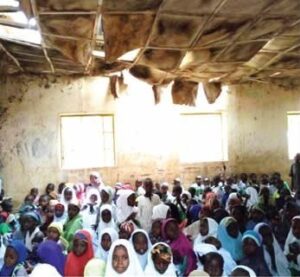In our write-up on child abuse last week, we noted that children got abused in so many forms from expected and unexpected sources. Child abuse, according to our report goes beyond underage labor, sexual stimulation or molestation, spanking, discrimination, and neglect, it includes any form of mistreatment knowingly or unknowingly melted to any human being under the age of 18 years by parents, caregivers, guardians, governments and the society at large.
We also examined cultural relativism of child abuse and defined the boundary between discipline and abuse. To catch up visit https://www.citzencomfort.com/2021/10/04/descent-from-discipline-to-abuse/
Now, let’s analyze child abuse matter further.
Did you know that governments at all levels, judiciary and society abuse children in not few ways?
Would political leaders and workers at the executive arms of governments at federal, state and local governments not feel abused if they were asked to sit on the floor to discharge their duties. While they work in the cushion comfort of their executive chairs and tables, they pretend they were incapable of changing the deploring conditions of millions of children, at every nook and cranny of Nigeria, sitting on the floors to learn in the public schools.
Would legislatures at all levels not kickstart impeachment proceedings against the executives if they were told to legislate in roofless chambers without seats? Recent reports show our MPs at federal level threatening to abandon their constitutional duties because the chamber’s air-condition system malfunctioned. Yet, they refused to hear the cries of millions of children learning under trees in front of complete dilapidated structures in all nooks and crannies of Nigeria.
The children of the very poor roam around the streets in the urban cities, especially in the northern part of Nigeria where they are called Alimanjiri, looking for what to eat, scavenging for left-over foods at the restaurants of the rich and or engaging in destitute works for survival. Yet we have fat paying officers, saddled with the responsibility of welfare for the less privileged children, moving welfare less file up and down the offices.
Was it not preposterous that Nigeria government cum lawmakers delayed the passage of the Child Right Act till 2003 because they were not comfortable with one of the provisions that prohibit child marriage? Even after the act was successfully passed in 2003, many states refused to domesticate the act in their statute books, thus leaving the children defenseless from their selfish parents and husbands.
Governments with no clear provisions for underage basic health, economic and social needs are abusers of children. When the law that protect vulnerable children, like Children Right Act of 2003 is still not being domesticated in many states talk less of implementation and such states are not being challenged; then the law, and the society are strong accomplices in the dastardly act of child abuse.
Governments at all levels in Nigeria have consistently failed to back their words with actions when it comes to matters concerning the vulnerable children. Education for All, Health for All, Housing for All, Food for All, Recreation for All etc are political gimmicks to cajole the poor parents of these vulnerable children to help the elite retain power.
Now, let’s look at child abuse from the prisms of Education, Health & Nutrition.
Education

More dehumanizing learning environments than these dot the Nigeria’s public school system. This is official abuse of Nigeria children. And its an eyesore.
UNICEF report on Nigeria children education are as follows:
“One in every five of the world’s out-of-school children is in Nigeria.
Even though primary education is officially free and compulsory, about 10.5 million of the country’s children aged 5-14 years are not in school. Only 61 percent of 6–11-year-olds regularly attend primary school and only 35.6 percent of children aged 36-59 months receive early childhood education.
In the north of the country, the picture is even bleaker, with a net attendance rate of 53 percent. Getting out-of-school children back into education poses a massive challenge.”
Nigeria governments have consistently fell short of international benchmark of education budget allocation ratio of 15 to 20%. As a matter of fact, the 2021 budget ratio of 5.6% was the worst in the last 10 years.
Health & Nutrition
The situation in the provision of health facilities for the children do not fear better. In 2001, Head of Governments of Africa Nation in Abuja, Nigeria, agreed to 15% annual budget allocation to health sector. Nigeria’s best since then was 5.9%, while countries like Rwanda, Botswana, Niger, Malawi, Zambia, Burkina-Faso have all surpassed the 15% benchmark. Abysmal health budgetary allocation and poor implementation resulted in Nigeria having one of the worst children health statistics in the world.
In 2016 Nigeria’s leaders unconditionally embraced 2030 sustainable development goals to end preventable child and maternal deaths, eradicate malnutrition and give all children a quality education. Almost half of Nigeria’s 200 million population is under 15, and achieving these goals would catalyse the dynamic and inclusive growth needed to create jobs.
However, Nigeria is retrogressing on all the key 2030 indicators for child development. More than 800,000 children lose their lives each year, mainly to preventable diseases such as malaria, pneumonia and diarrhoea. Over the past decade, the country’s share of global under-five deaths doubled – to 16% of the total – and continues to rise.
Malnutrition is endemic. Almost half of Nigeria’s children are stunted by nutritional deprivation, with devastating consequences for health and cognitive development. About 2 million face life-threatening malnutrition.
The case of Nigeria children is that of children under the yoke of official abuse.
Source: Dare Agbeluyi, Chief Publisher.
Publisher’s Note:
- Leave your comments in the comments box below and share the post
- Send your health- related articles, stories, tips to compack2006@yahoo.co.ukfor free publication
- Like and share our Facebook page: @citizencomfortng